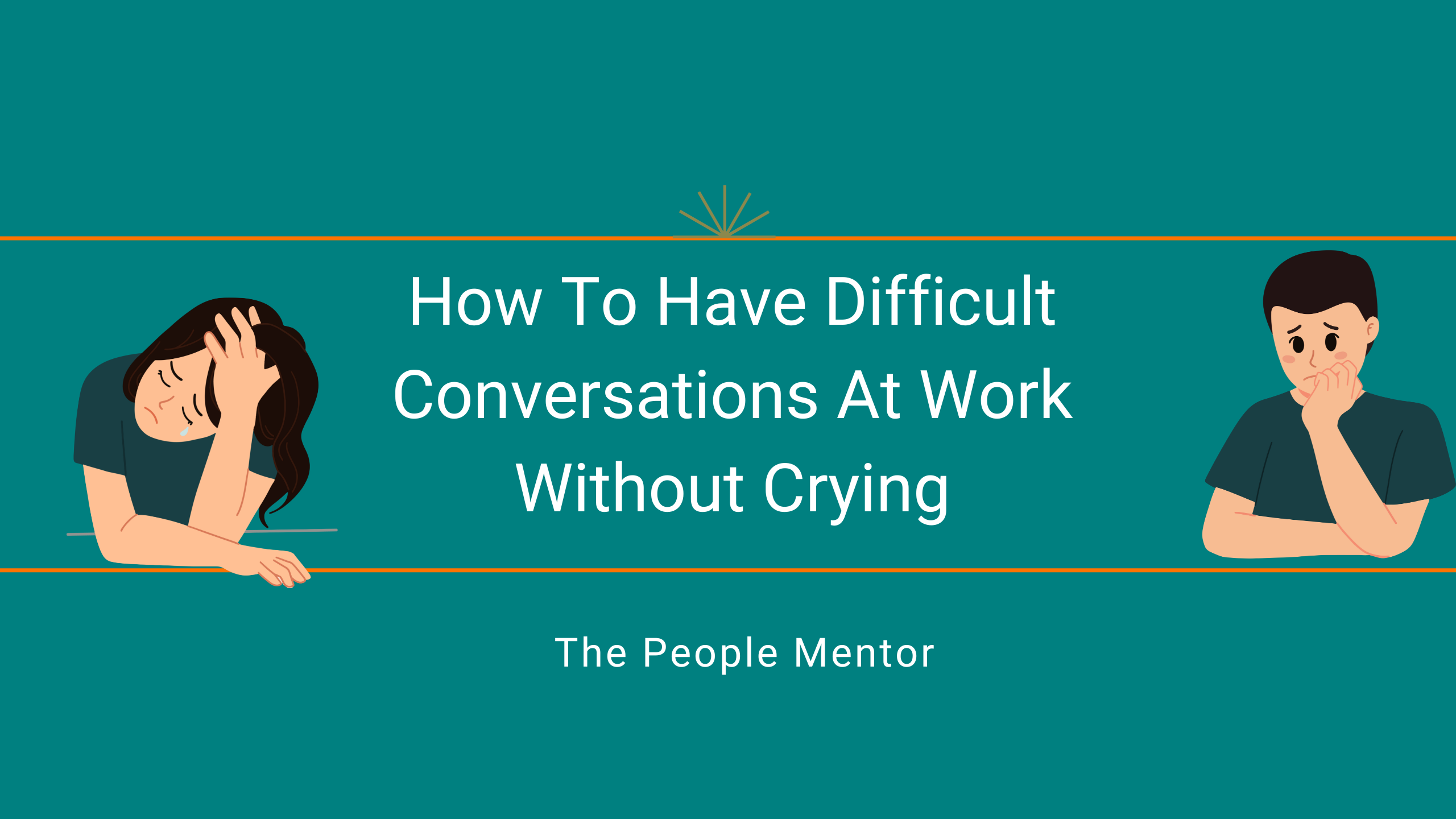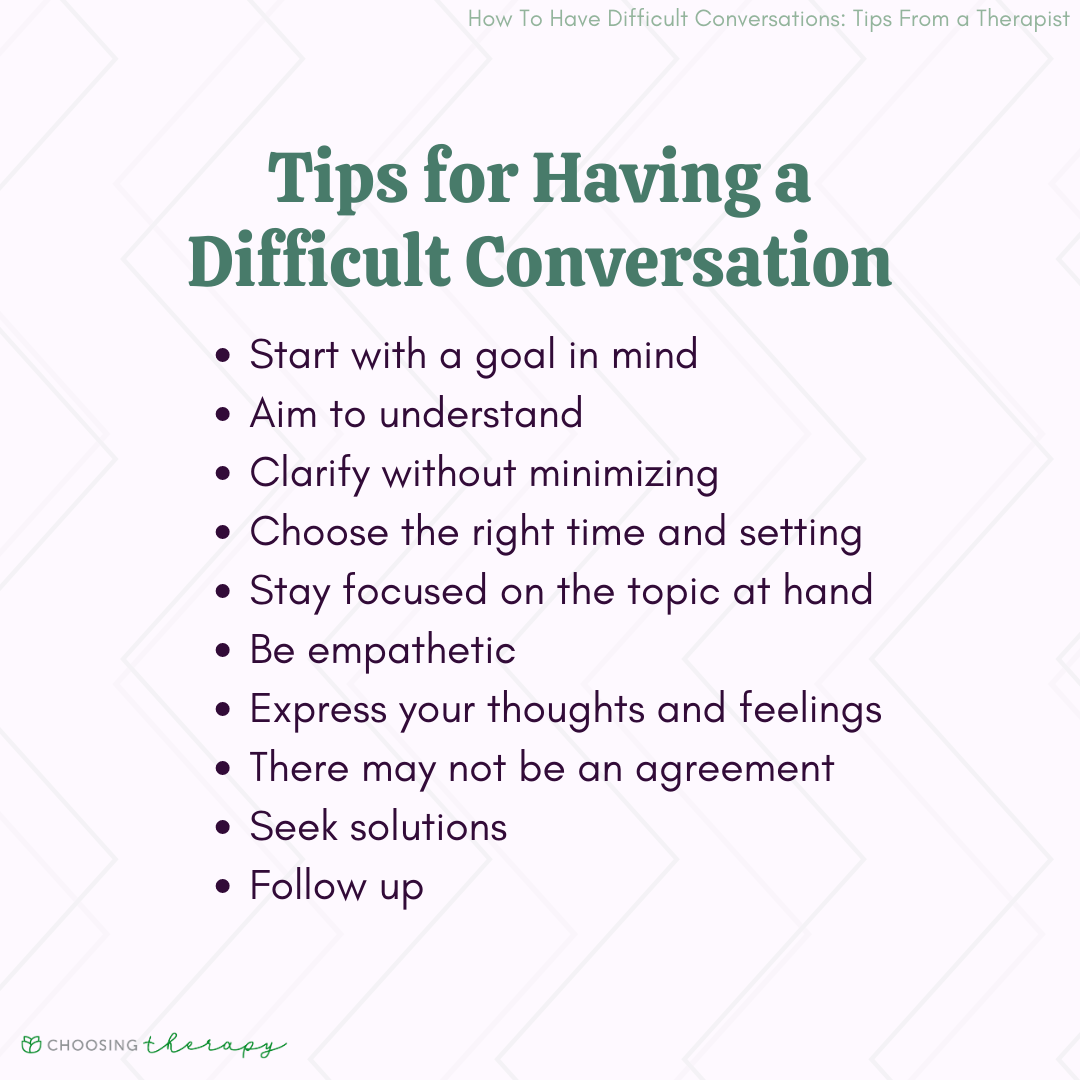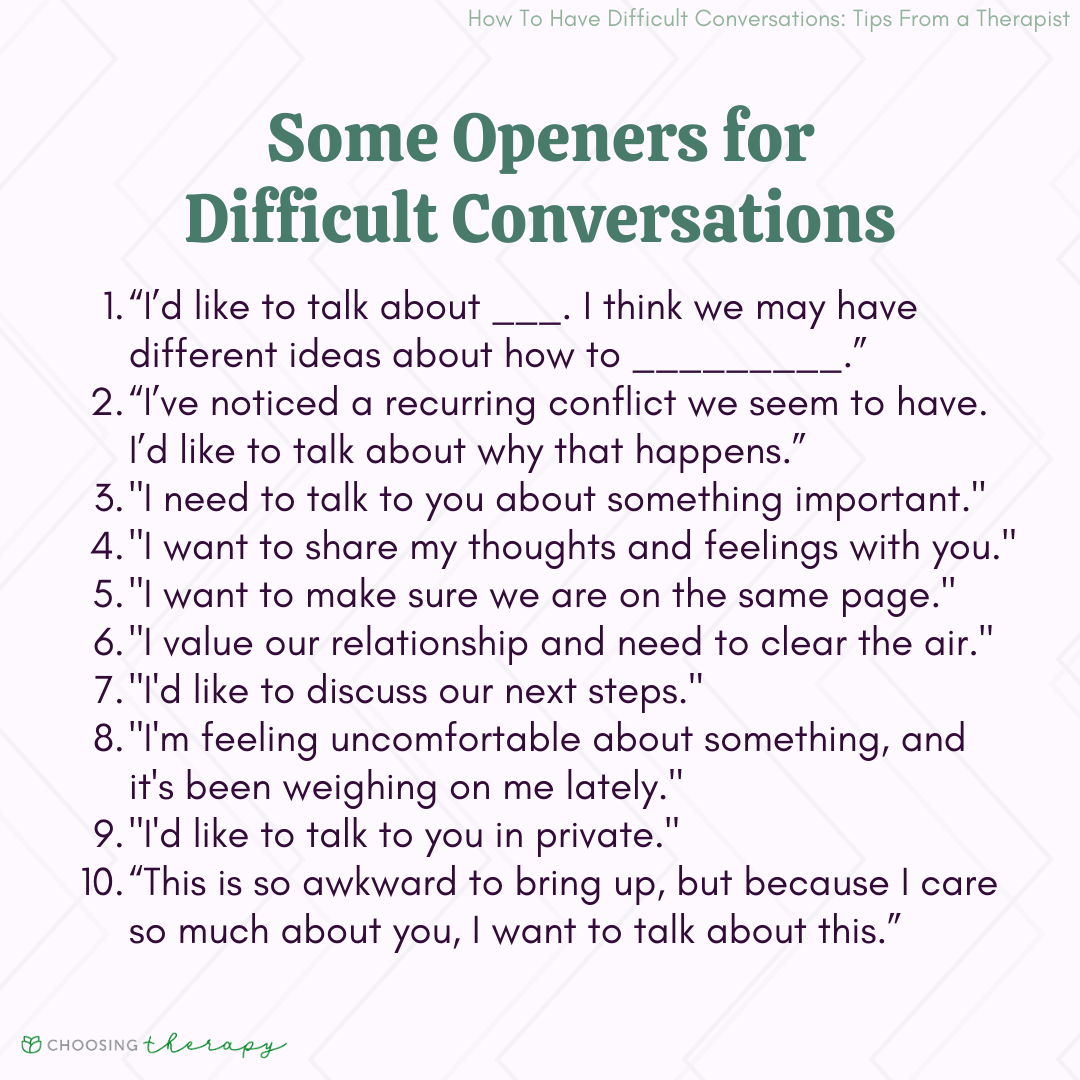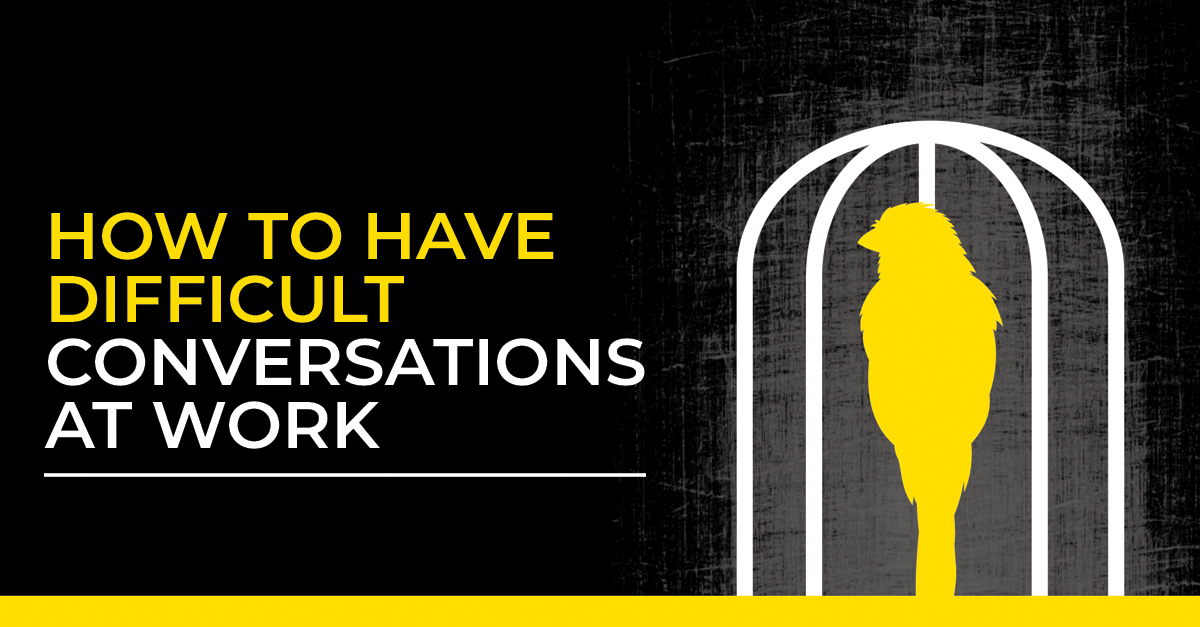How To Have Difficult Conversations At Work

The fluorescent lights of the office hummed, casting a sterile glow on Sarah’s face as she stared at her computer screen. Her heart hammered against her ribs. An email sat open in front of her, unsent. It was a carefully worded attempt to address a recurring issue with a colleague's consistent missed deadlines. The air in the room seemed to thicken with each passing minute, the weight of the unspoken tension palpable.
Mastering the art of difficult conversations is essential for a thriving workplace. It's about navigating disagreements, addressing performance issues, and giving constructive feedback, all while maintaining respect and fostering a positive work environment. This guide provides practical strategies to approach these crucial interactions with confidence and empathy.
Understanding the Importance
Difficult conversations are inevitable in any workplace. Avoiding them can lead to resentment, decreased productivity, and a toxic atmosphere.
According to a 2023 study by Korn Ferry, unresolved conflict can cost companies significant time and resources, impacting overall performance and employee retention.
Learning to navigate these conversations effectively not only resolves immediate issues but also builds trust and strengthens relationships within the team.
Preparing for the Conversation
Self-Reflection
Before initiating a difficult conversation, take time for introspection. Understand your own emotions, motivations, and desired outcomes.
Ask yourself: "What am I hoping to achieve?" and "What is my role in the situation?"
Identifying your own biases and assumptions will help you approach the conversation with a clearer and more objective perspective.
Choosing the Right Time and Place
Timing is crucial. Select a time and location that allows for a private and uninterrupted discussion.
Avoid having these conversations in public spaces or when either party is rushed or stressed.
A neutral setting, such as a conference room, can often be more conducive to a productive exchange than someone's personal office.
Gathering Your Thoughts
Prepare your talking points in advance. Write down the key issues you want to address, along with specific examples.
Frame your concerns in a non-accusatory way, focusing on the impact of the behavior rather than assigning blame.
Using "I" statements, such as "I feel frustrated when...", helps convey your perspective without putting the other person on the defensive.
During the Conversation
Active Listening
Effective communication is a two-way street. Practice active listening by paying close attention to what the other person is saying, both verbally and nonverbally.
Show empathy by acknowledging their feelings and perspective. Summarize their points to ensure you understand them correctly.
"So, if I understand correctly, you're saying..." is a great way to confirm your understanding and avoid misunderstandings.
Staying Calm and Respectful
It’s easy for emotions to escalate during a difficult conversation. Maintain a calm and respectful demeanor, even if the other person becomes defensive or upset.
Speak in a measured tone, avoid raising your voice, and refrain from personal attacks.
Taking a deep breath or pausing for a moment can help you regain composure if you feel your emotions rising.
Finding Common Ground
Look for areas of agreement. Identifying shared goals and values can help bridge differences and create a sense of collaboration.
Focus on finding solutions that benefit both parties, rather than simply trying to "win" the argument.
"I think we both want to see this project succeed, so let's work together to find a solution."
After the Conversation
Following Up
After the conversation, follow up to ensure that any agreed-upon actions are being implemented. This demonstrates your commitment to resolving the issue and fostering a positive working relationship.
Send a brief email summarizing the key points of the discussion and outlining any next steps.
Schedule a follow-up meeting to check in and address any remaining concerns.
Learning and Growing
Reflect on the conversation to identify what went well and what could have been done differently. This will help you improve your communication skills and navigate future difficult conversations more effectively.
Seek feedback from trusted colleagues or mentors on your communication style.
Remember that mastering difficult conversations is an ongoing process, and every interaction is an opportunity to learn and grow.
Sarah took a deep breath, deleted the email draft, and walked over to her colleague's desk. She knew it wouldn't be easy, but she was armed with a plan, empathy, and a commitment to finding a solution. The humming of the office lights seemed a little less daunting now, replaced by a quiet sense of purpose. She was ready to have the conversation.


















